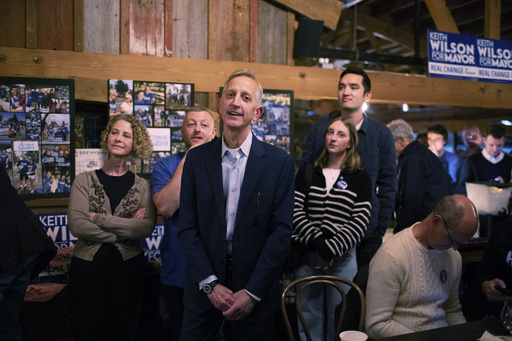
JEFFERSON CITY, Mo. — In the weeks leading up to the elections, activists nationwide gathered for an online rally celebrating a significant number of state ballot initiatives aimed at transforming voting processes. Many were optimistic that voters would move away from traditional partisan primaries, opening the door to ballots featuring a wider array of candidates.
However, the effort for election reform faced setbacks, with voters largely rejecting measures presented on statewide ballots. John Opdycke, the president of Open Primaries, an advocacy organization, reflected on the outcomes, noting, “In retrospect, we weren’t yet ready for prime time.” In several states, including Arizona, Colorado, Idaho, Missouri, Montana, Nevada, Oregon, and South Dakota—representing a mix of political landscapes—voters dismissed proposals for ranked choice voting, open primaries, or both.
These open primary initiatives aimed to allow candidates from all parties to appear on a single ballot, with the leading candidates advancing to the general election. Ranked choice voting would permit voters to rank candidates based on preference. If no candidate achieves a majority of first-choice votes, those with the least votes are eliminated, and their supporters’ votes then transfer to their next preferred candidate.
Despite raising around $110 million to support these statewide measures, outpacing opposition funds, election reform advocates struggled to sway the majority of voters in their favor. According to Trent England, executive director of Save Our States who opposes ranked choice voting, “While Americans are frustrated with politics, I think most Americans are just fine with the traditional way of voting.”
Proponents of alternative voting methods felt encouraged after recent successes, including Alaska voters narrowly approving open primaries and ranked choice voting in 2020, and first-round approval of a similar measure in Nevada in 2022. However, this year, Nevada voters changed their stance and declined to support the measure. In Alaska, a recent push to overturn open primaries and ranked choice voting fell slightly short, receiving 49.9% backing according to results released recently, with certification due by the end of the month.
Currently, ranked choice voting is utilized in Maine’s federal elections, along with around 50 additional jurisdictions, including Washington, D.C., and the Chicago suburb of Oak Park, which both approved new measures this November. Voters in Bloomington, Minnesota, also confirmed their support for the system. Data indicates that ranked choice voting often does not alter the outcome when compared to traditional elections, with an analysis covering nearly 150 races across 16 areas revealing that only 30% necessitated the ranked system, as other elections resulted in candidates winning a majority of initial votes.
On a national level, only three candidates who trailed in first-place votes ultimately succeeded after ranked choice tabulations changed the results. Notably, in San Francisco, two progressive candidates encouraged voters to rank them first and second; despite initially losing ground to a moderate candidate, one progressive candidate secured victory after six rounds of eliminations.
Advocates argue that ranked choice voting can prevent similar candidates from splitting votes, functioning as a safety net when needed, as stated by Deb Otis, research and policy director at FairVote. Furthermore, Portland, Oregon, implemented ranked choice voting for the first time in their mayoral and City Council elections this November, though a concurrent proposal for similar voting in federal and statewide offices was rejected. Political outsider Keith Wilson, after leading the initial vote count in Portland’s mayoral race, was elected following 19 rounds of ranked tabulations—one City Council seat similarly took up to 30 rounds to finalize results.
Nonetheless, challenges arose, with about one-fifth of Portland voters skipping the council races and around one in seven abstaining from the mayoral vote, leading critics to highlight potential confusion surrounding the ranked method.
Concerns remain as research suggests that certain demographics, particularly Black voters, tend to rank candidates less frequently than their white counterparts. Political science expert Larry Jacobs from the University of Minnesota remarked that there’s little evidence suggesting ranked choice voting diminishes political polarization or negative campaigning, suggesting a potential shift in sentiment away from the reform.
Meanwhile, organizations that heavily funded this year’s initiatives are re-evaluating their strategies moving forward. They are contemplating separating their efforts to abolish partisan primaries from those advocating for ranked choice voting, focusing on smaller, more manageable reforms that state legislatures might embrace rather than pursuing sweeping constitutional amendments. Opdycke emphasized the importance of grassroots mobilization, noting, “I think there’s a deeper appreciation for the kind of groundwork that needs to happen before launching a formal campaign.”
Unite America, which invested roughly $70 million this election cycle to eliminate partisan primaries, is conducting thorough analyses of voter feedback to inform future strategies. Executive Director Nick Troiano reflected on the organization’s commitment to these reforms, pointing out that the emphasis is not on whether to continue, but how they can effectively work toward success.

